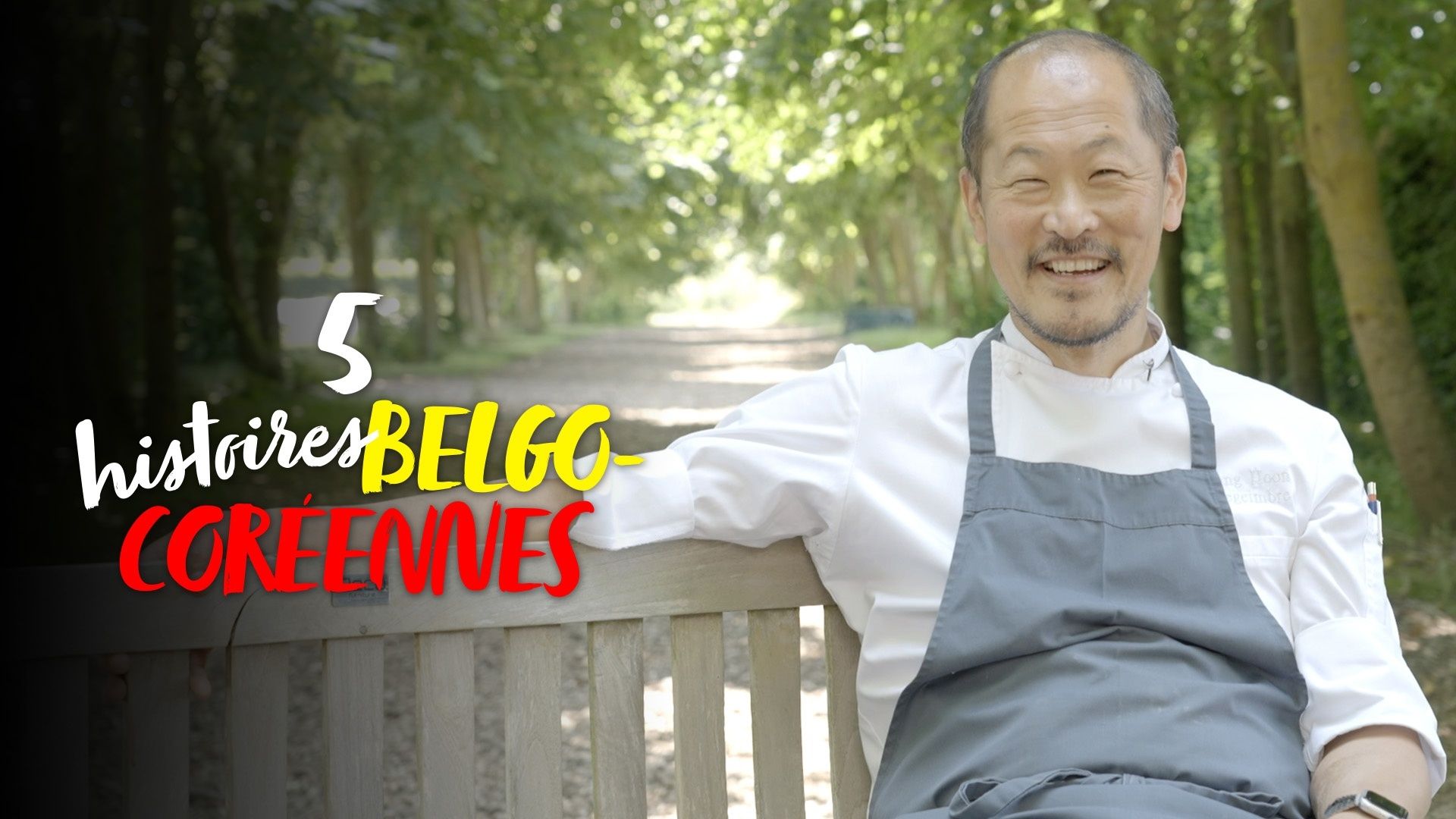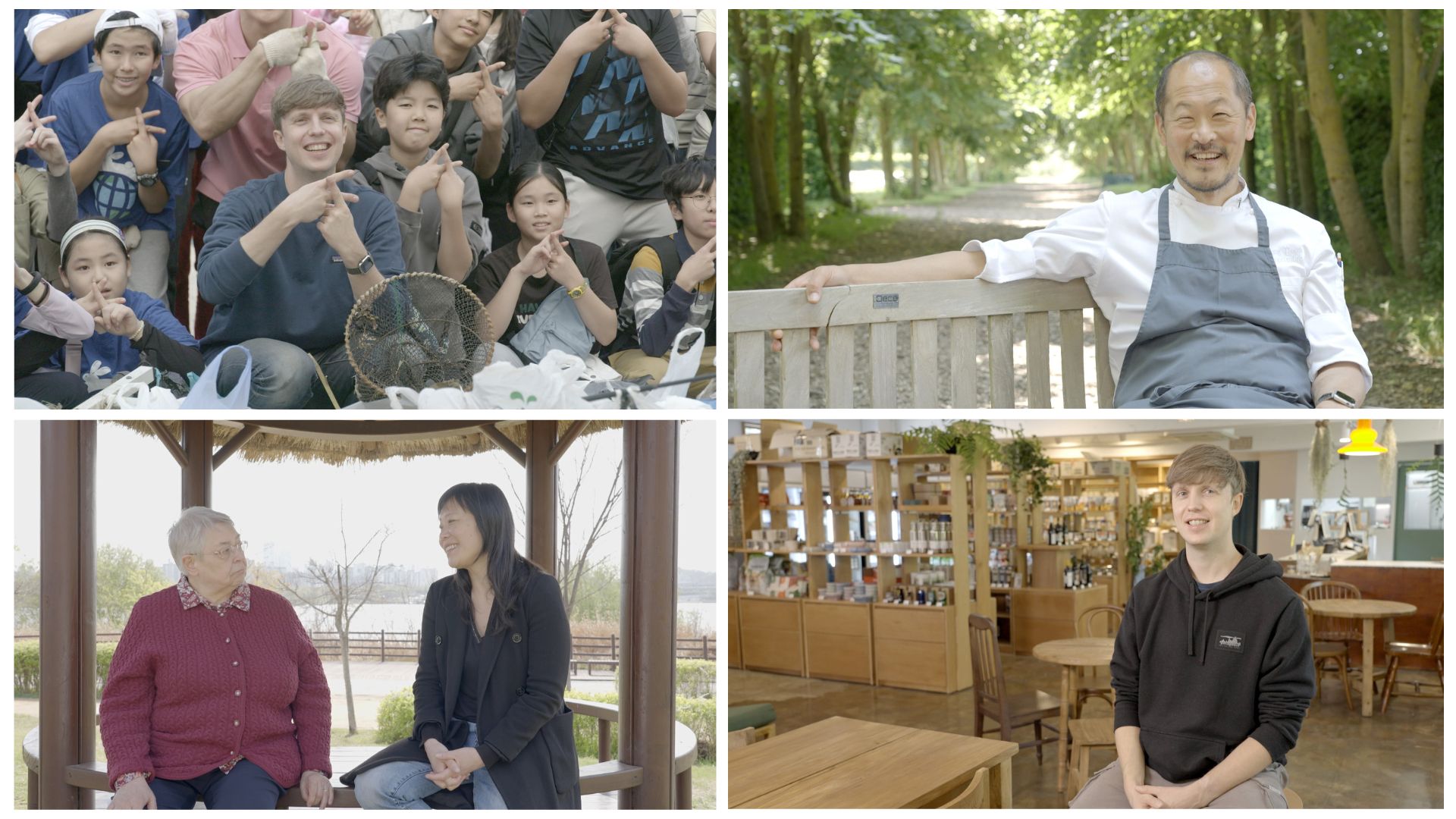
Korean culture, like everywhere else, is no longer a novelty in Belgium. The Korean Culture Centre has sponsored a unique documentary film directed by Thierry Loreau, a passionate enthusiast of Korean culture. His interest began with classical musicians and the Korean language, and has since expanded to encompass the culture as a whole.
The documentary, titled “5 Stories about Belgians and Koreans (Cinq histoires belgo-coréennes)”, is the first film to exclusively discuss cultural exchanges between Koreans and Belgians, as experienced by individuals from both countries.
Since December 15, 2023, the documentary is available in the RTBF, the Public broadcasting company, which is directed by Thierry Loreau together with Bernard Sauvenier, it will be available until March 14th 2024 on the website of RTBF
Cinq histoires belgo-coréennes present us five different stories of Belgian people that have some type of connection with South Korea. These stories happen in such different moments of the country’s situation, starting with Marie-Helene Brasseur, a Belgian nurse that landed in the country in 1972 to help the most needed, when she arrived she was only a nurse, but she ended up becoming a doctor. It was complicated, but she could achieve it. Since Marie-Helene arrived in Korea, she has been helping, taking care and looking after the patients that attend to her medical clinic.
Some years before she arrived, Father Didier came in 1959 to Korea with The Society of Mission Auxiliaries to help the handicapped, and as well as Marie-Helene, to look after the most needed. In the documentary Didier’s family explains an interesting story, when he got to the country, a Korean priest from the village gave him goats as gift, there wasn’t enough grass for the animals to eat, so the Belgian priest proposed to go feed the animals a bit higher in the mountains, where there was enough grass.
But, “what did he do with the goats?” is the question. So well, he decided to start making cheese, which was a shock for everyone in the village, but everyone loved it in the end. The Koreans even made a Cheese Theme Park with a museum dedicated to Father Didier! Father Didier and Marie-Helene met in a group of Belgians who lived in Korea back then, and they became friends. Now Marie-Helene has a good relationship with Didier’s relatives.

Around the 70s, Korean families had to give in adoption their children due to a very poor period that the country was going through, and 200.000 kids were sent to Europe and the United States. Two of these kids are the following histories that the program talks about, Cathay Min Jung, an actress, now director of Theatre le Rideau(Brussels), who is still looking for her biological mother; she found her father some years ago, and she asked him for help to find her mother, but eventually he changed his mind, so she is still looking for her mother. The actress and Sang Hoon Degeimbre, chef of “L’air du Temps”, a two star Michelin restaurant, meet in a restaurant to talk about their Korean roots, both have the same identity problem: “What is your nationality?”, “Are you Belgian or Korean?”, are two questions that they have to deal with in their daily life. The two adoptees feel Korean and Belgian at the same time. But everytime they go back to their mother country, they always feel like they belong there. Sang Hoon visits the country to find new flavors, cooking techniques and feel connected to K-cuisine and K-culture.
The last protagonist that we meet is Julien Quintart, a TV host that fights for veganism and climate change. He moved from Belgium to Korea when he was only seventeen looking for new and different foreign experiences, he stayed in the country of Morning Calm and became very well-known.
As the documentary goes further, the five Belgian-Korean protagonists bump into each other, they share their stories, their feelings about both countries and talk about identity. It is very interesting to see five diverse personalities creating different impacts in the same country. Likewise the feeling of belonging to two totally different environments and cultures at the same time is also a very good point to see, feel related to or just even to talk about, not only because you might share both nationalities and you were born with both cultures but because sometimes we feel that we belong in two or more different countries, environments and cultures.
After reading about these five stories; would you dare to leave your beloved country to move to the other side of the globe just to dedicate your life to others like Marie-Helene and Father Didier did? Or would you be able to leave your mother country and move abroad to experience different cultures and learn a new language like Julien? If you are interested in knowing both positive and negative parts of this life changing experience, or you are just interested in K-lifestyle I invite all of you to take a look at this documentary! https://auvio.rtbf.be/emission/cinq-histoires-belgo-coreennes-26608
